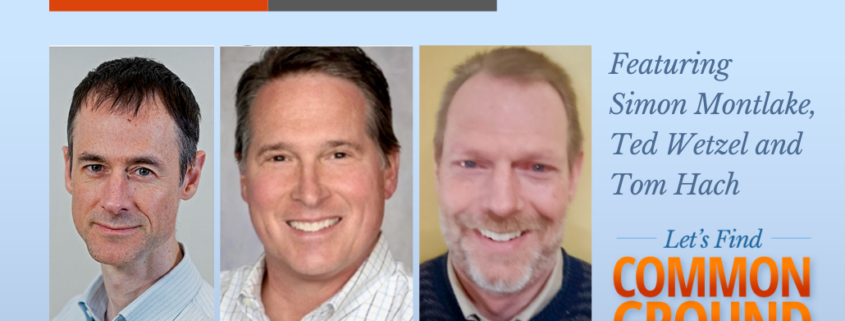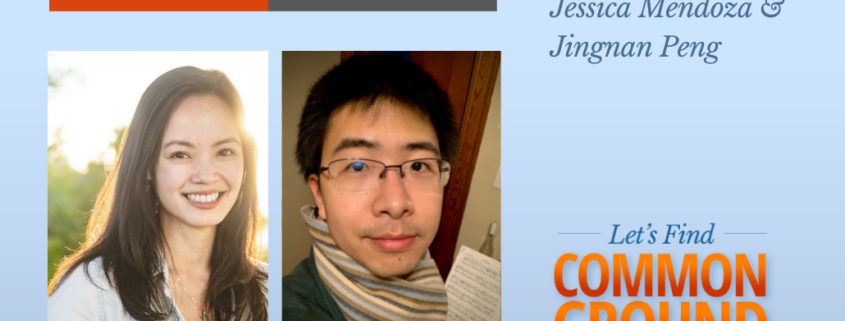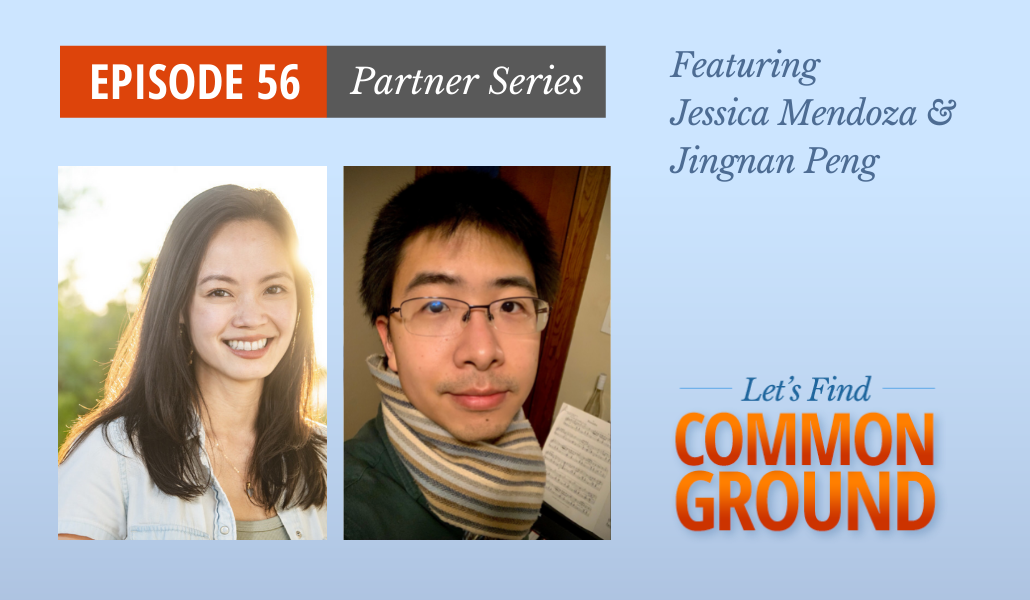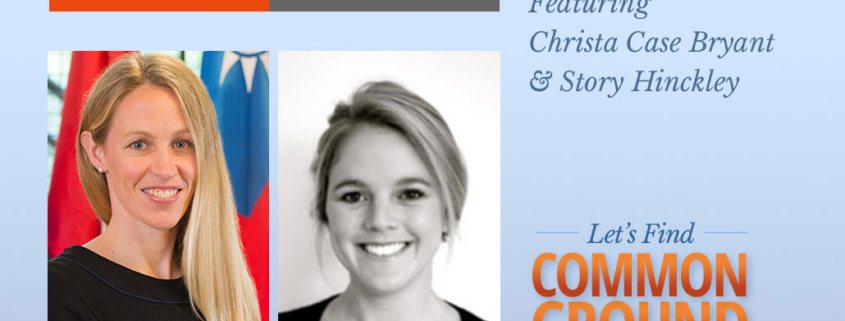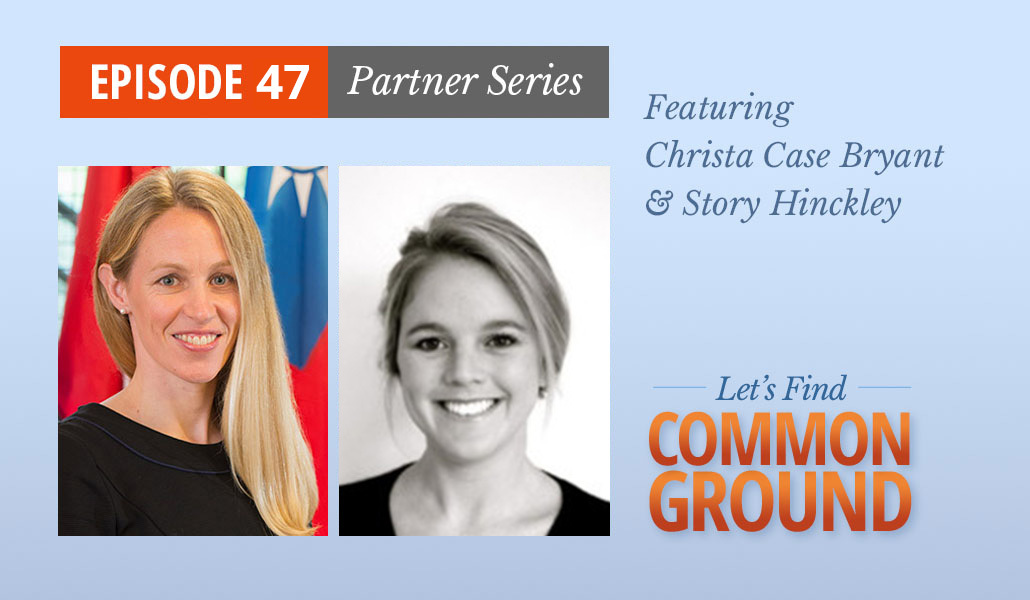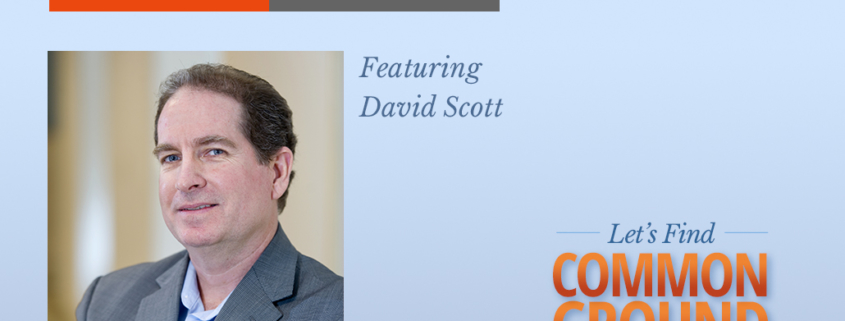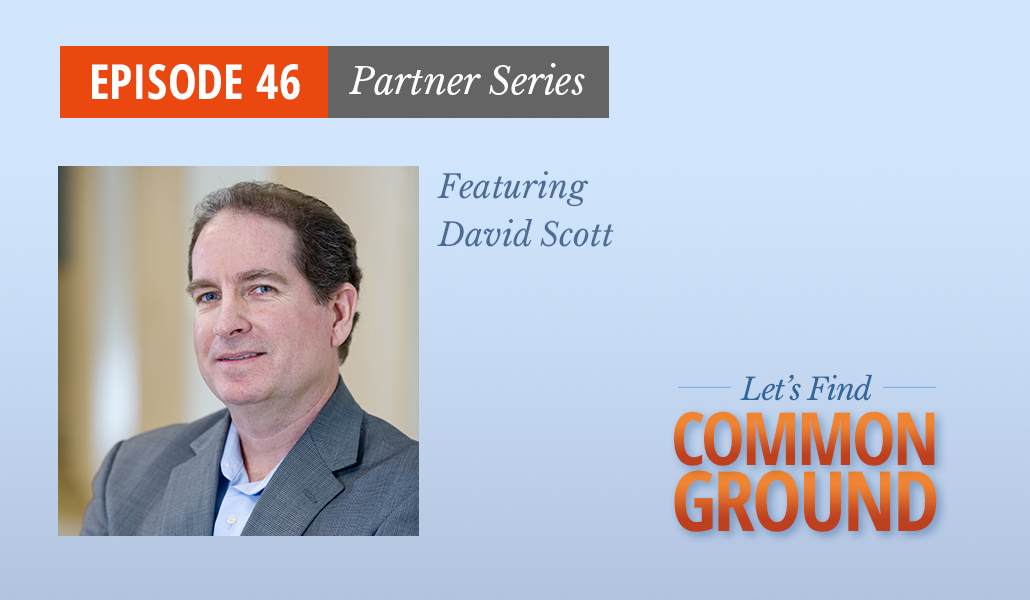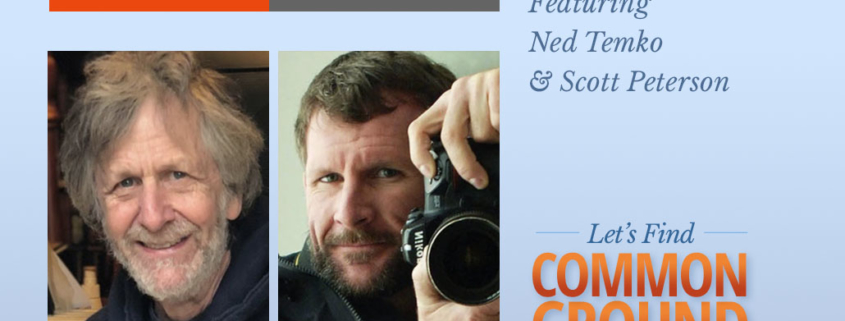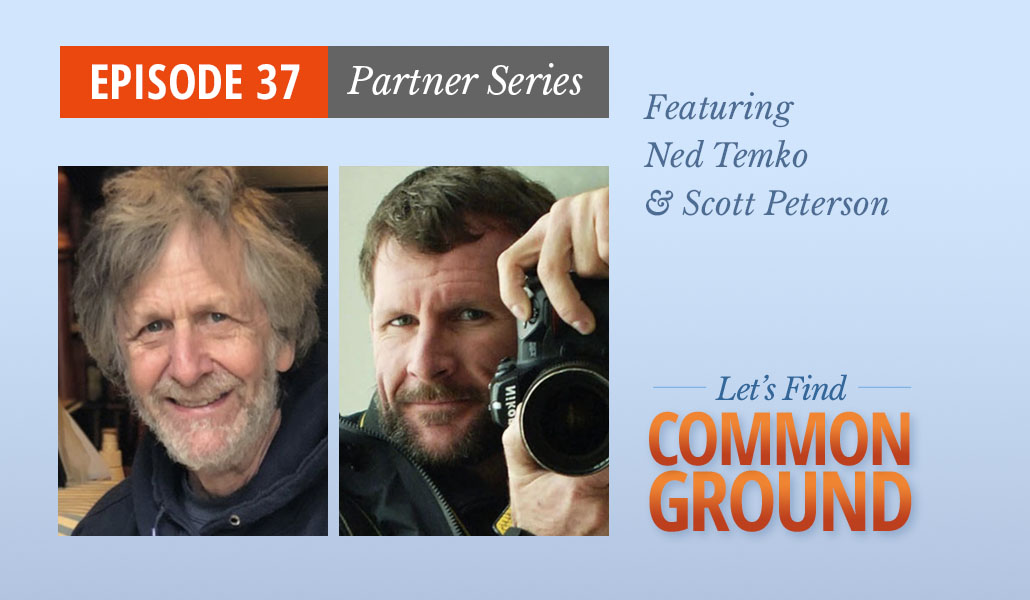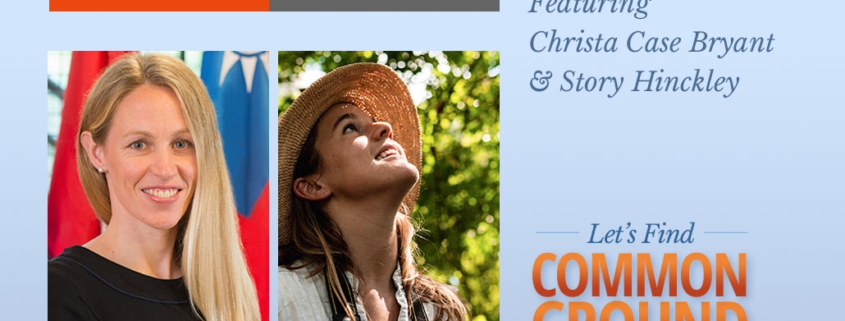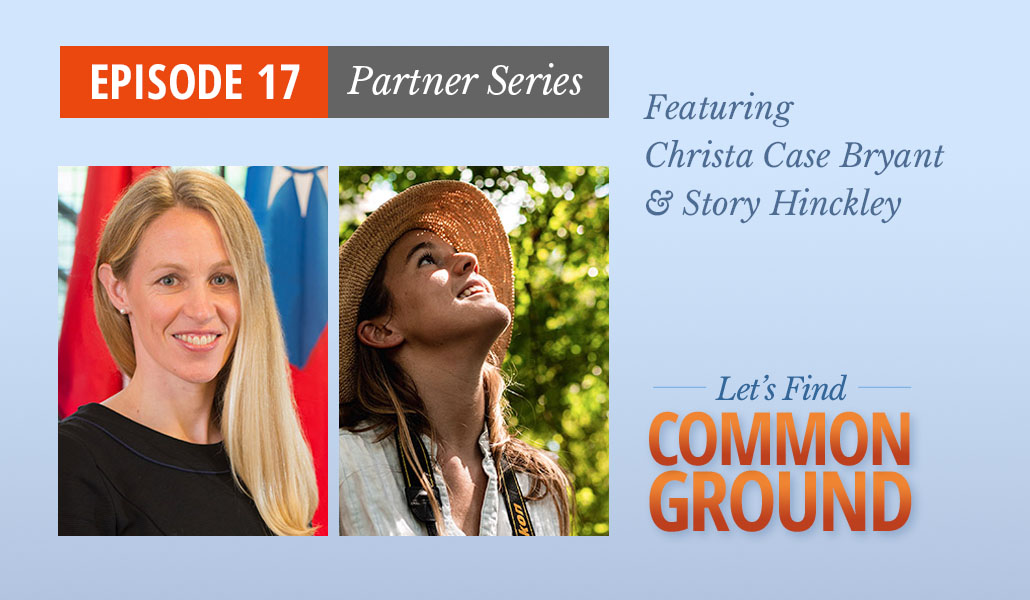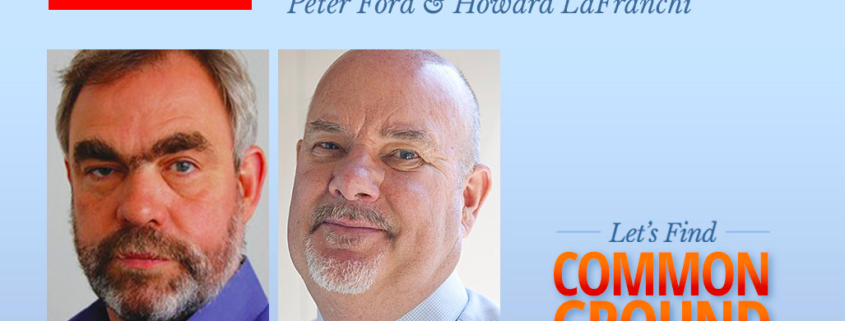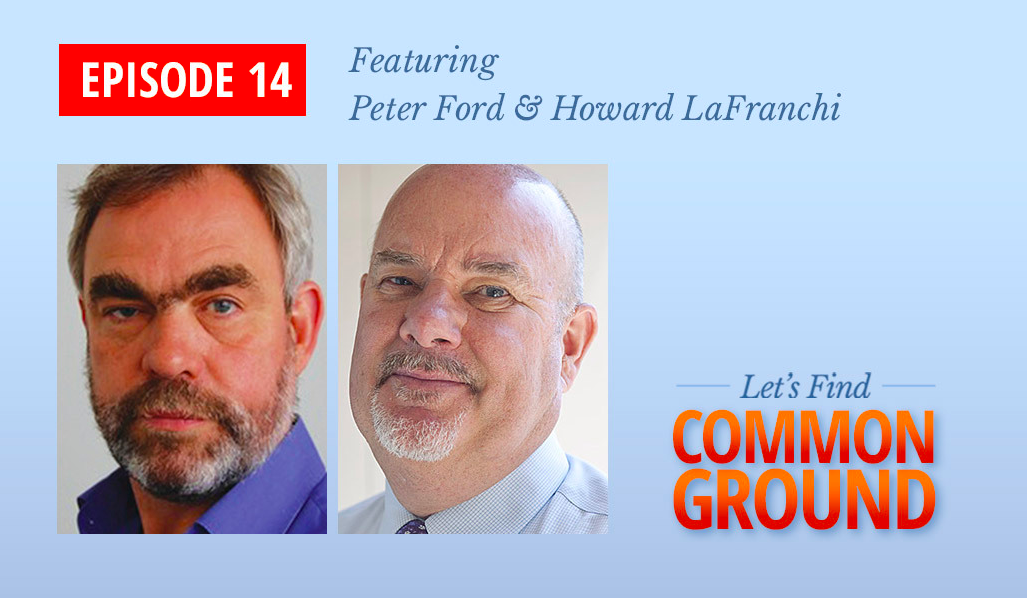Local Common Ground: Dinner and a Fight Dialogue
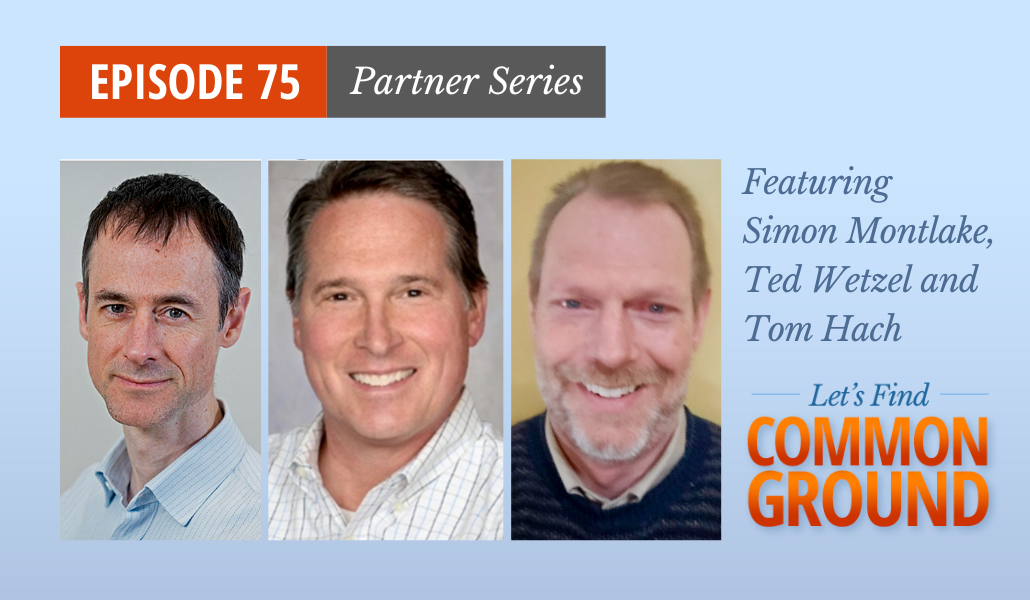
Subscribe to the Podcast
How can people of all political stripes disagree constructively? Explore a lively grassroots effort.
Want to know one of the most exciting and innovative ways to find common ground? Get people out of their political bunkers and move them beyond rigid polarization in our divided nation. Consider local efforts, such as the one we profile in this episode of Let’s Find Common Ground.
Journalist Simon Montlake of The Christian Science Monitor tells us about his reporting on a lively grassroots effort in northeast Ohio to help people of all political stripes disagree constructively. Participants meet first over dinner at a community center and then discuss a hot topic. The audience is invited to discuss a controversial proposition, listening to different points of view. It’s called Dinner and a Fight with the word “fight” crossed out and replaced by “dialogue.”
Organizers Ted Wetzel and Tom Hach explain how the evenings work and why they can be part of a broader effort to rebuild civic bonds. Ted is the founder and executive director of Fighting-To-Understand, a nonprofit group that encourages people to be more skilled at healthy disagreement. Former IT program manager and retired Navy Reservist Tom Hach is Director of Ohio Freedom Action Network (OhioFAN).
Read the Episode Transcript
Ep 75 – Local Common Ground: Dinner and a Fight Dialogue
Simon Montlake
Simon Montlake is a national reporter at the Christian Science Monitor, based in Boston. Democracy and politics are among his beats. He’s a former Monitor correspondent in Jakarta, Bangkok, and Beijing, where he covered political upheavals, civil wars, economic crises, natural disasters, and the Beijing Olympics.
In addition to the Monitor, Simon has worked for The Economist and Forbes. Born in London, he was educated at the University of Manchester, and has a soft spot for Manchester City FC.
Ted Wetzel
Ted Wetzel is founder and executive director of Fighting-To-Understand, a 501(c)3 organized in 2019 for civic education. Ted brings a background of engineering, sales, marketing, business ownership, parenting, organizational development, psychology, and spirituality to bear on the gnawing question: if democracy is rooted in disagreement, then how do We The People become very skilled at healthy disagreement? A first step on this journey can be participation in Dinner and a Fight Dialogue.
Tom Hach
Tom is the State Director of Ohio Freedom Action Network (OhioFAN), a group made up of liberty group leaders from across the state.
Tom retired as an IT program manager after many years, and he also retired from the Navy Reserve after a 21 year career, during which he served in Iraq from 2006 to 2007. Additionally, Tom is in his third term as a school board member.
Want to hear more? Check out our podcast page to see all the discussions!

